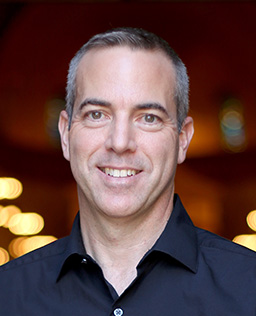7/22/2022
Persistent Prayer: an Act of Crazy Compassion and Reckless Love
 Normand Gouin, Pastoral Minister of Liturgy and Music
Normand Gouin, Pastoral Minister of Liturgy and Music
July 22, 2022
 Normand Gouin, Pastoral Minister of Liturgy and Music
Normand Gouin, Pastoral Minister of Liturgy and Music
July 22, 2022
So often, especially in recent times, I am approached by family, friends, and members of our Paulist Center community asking for prayers. These requests come in response to the passing of a loved one, to a sudden job loss or separation in a relationship, or to the news of a diagnosis of a terminal illness, etc.
At every Mass we pray for the growing list of concerns and needs in our world, such as the devasting effects of climate change, the war in Ukraine, the ongoing battle with the Coronavirus, racism, injustice in all its forms, and the pervasive divisiveness in our land. Yet with all that is going on, in what often seems like a futile exercise, we are often left wondering why does it seem like things are getting worse, why do these prayers seem to go either unanswered or to have no effect? We continue searching but have not found? Why does the door we keep knocking at never seem to open? I have struggled with these questions, and I bet you have as well.
As I reflected on Abraham’s persistence in this weekend’s passage from Genesis and Jesus’ instruction to the disciple’s on how to pray, I wonder if we have misunderstood what prayer is all about.
I don’t believe Jesus ever intended ask, search, and knock as a blank check on God’s account. As if prayer was a transaction between us and God! Jesus’ instruction to ask, search, and knock is perfectly reflected in the prayer he taught the disciples, the prayer we have come to know as The Lord’s Prayer. We are to be persistent in aligning our lives to the mercy and compassion of God, bearing witness to the presence of God in our life and relationships, opening ourselves to the gift and sufficiency of this day, freely receiving and giving forgiveness.
To be persistent in prayer means to not give up when the sands of life are shifting under our feet, when our life comes unhinged, when we are overwhelmed, when we come to the limits of our ability, or when it looks like this day is as good as it gets and all there will ever be. 1
However, beyond being persistent, I believe it is also important to note that prayer is not simply a private act. When we pray for specific concerns, needs, or situations, are we not in effect also expressing our desire for the healing and restoration of the entire Body of Christ?
To address this question, I turn to the insights of the spiritual writer and theologian, Ron Rolheiser, OMI. Rolheiser describes prayer not so much as the words one speaks or imparts but an attitude we embody that when adopted can affect the entire Body. Rolheiser states, “Central to our faith as Christians, is the belief that we are all part of one mystical body, the Body of Christ. This is not a metaphor. This body is a living organism. If this is true, and it is, then there is no such thing as a truly private action. Our prayers are health-giving enzymes affecting the whole body, particularly the persons and events to which we direct them.” 2
From this perspective, though we may not always be aware of or experience the fruits of our prayer, it is important to remember that trusting in the power of prayer and being persistent in prayer helps us to stay connected and concerned for one another as Christ’s Body. In this sense we go from, in the words of Richard Rohr, OFM, “simply saying and offering up prayers to becoming a prayer.”
In her recent op-ed in the New York Times on prayer, author Anne Lamont wrote, “I pray to be more like Jesus with his crazy compassion and reckless love. Some days go better than others. I pray to remember that God loves Marjorie Taylor Greene exactly the same as God loves my grandson, because God loves, period. God is better at this than I am. I lift up one of my grown Sunday school kids who is in the I.C.U. with anorexia. I beseech God to intervene, and she does, through finding my girl a great nurse later that day. My prayer says to whoever might be listening, “I care about her and have no idea what to do, but to hold her in my heart and turn her over to something that might do better than me.”3
May our practice of prayer, through trust and persistence, be like a sneaky hidden antibiotic – needed precisely when it seems most useless
1. Michael K. Marsh, “Let us Dare to Pray (And Not Just for What We Want), from Interrupting the Silence, sermon, July 2019.
2. Rohlheiser, Ron, OMI, “When We Doubt the Power of Prayer”, essay, www.ronrohlheiser.com, September 20, 2021.
3. Lamont, Anne, “I Don’t Want to See a High School Football Coach Praying on the Fifty-Yard Line” New York Times, edition: July 8, 2022.